He picks up the phone on the fifth ring, sounding like any other small-town Nebraskan who retired to Florida. The former police chief says it’s been a long time and he’s not really interested in talking about it.
But then Greg Webb, the one-time police chief in Lyons, changes his mind. Yes, he will answer questions about the 1986 murder of Anna Anton, a murder that shocked the northeast Nebraska town that had only one other recorded murder in its entire history. Yes, he will discuss how he vanished without a trace soon after the authorities figured out that the slain woman was Webb’s neighbor – and one-time girlfriend.
And yes, there is the small matter of him living under an assumed name, hiding in plain sight and evading arrest for seven years in Florida until his former boss recognized him on a 1993 episode of “Unsolved Mysteries.”
The mystery didn’t stay unsolved. Instead, Webb, facing a first-degree murder charge, eventually agreed to plead no contest to manslaughter. A no contest plea is equivalent to a guilty plea, but the person doesn’t accept responsibility.
Thirty years after being caught for a killing that stunned Nebraska, Webb still doesn’t accept responsibility for her death.
“My lawyer wanted to go to trial,” Webb said during an hour-long phone interview from his home in DeLand, Fla. “He thought we had viable alternate suspects. When I asked him if we would win, he said, ‘Well, you never know how it will go.'”
Webb says he agreed to the deal because he didn’t want to roll the dice with a jury.
Former Nebraska State Patrol investigator Jerry Krieger doesn’t buy Webb’s story. Not for one second.
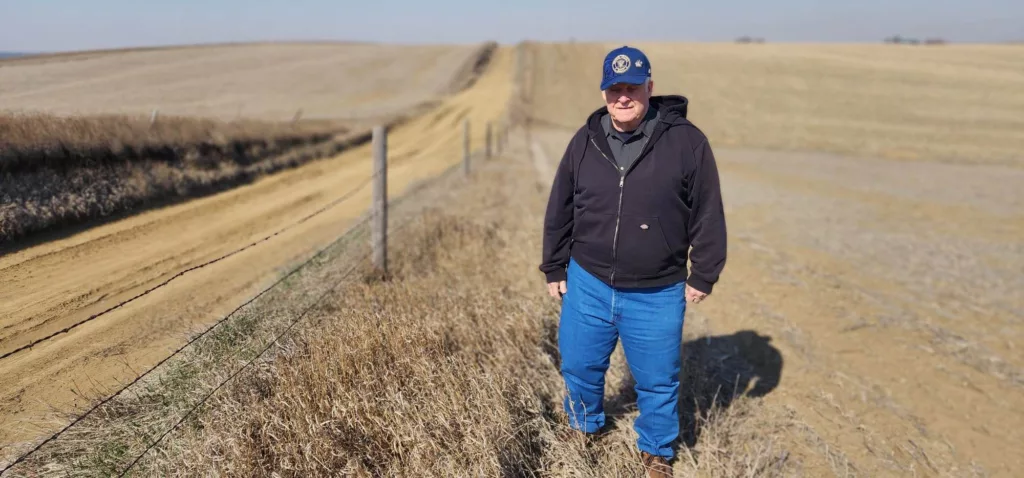
Krieger says he focused on the small-town police chief from the start, because the person who killed Anton had to have an intimate knowledge of forensics – the sort of things that a police chief might understand.
“Cleaning the body,” Krieger says. “Disposing of the clothes…dumping the body in the middle of nowhere. A regular person wouldn’t think of those things.”
Anton and Webb met in a bar at Arnolds Park, near Lake Okoboji, Iowa. They enjoyed partying together. The 34-year-old Anton decided to rent the first-floor apartment in the duplex where he lived near 4th and Pearl, a short walk from Lyons’ main drag.
Anton allegedly feared her ex-husband, and told people she believed that living near a police officer and having his patrol car parked outside the duplex would protect her. Investigators later learned Anton had fabricated some stories about her ex-husband for unknown reasons.
Lyons, then with a population of about 1,200, is a town where everyone knows everyone, a town people move to because of family, Mayor Mary Piper told “Unsolved Mysteries.” But Anton didn’t know anyone besides Webb.
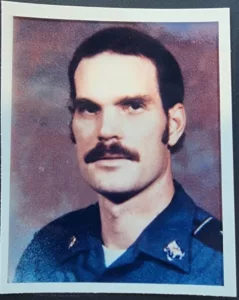
Anton, who walked with the assistance of a cane due to a car accident, relied on local kindness for help, getting rides to the grocery on Main Street from parishioners at St. Joseph’s Catholic Church.
After moving into the duplex in early October, Anton befriended Shirley Edgecomb, who lived across the street. She gave Edgecomb an envelope to give to authorities if anything happened to her. It contained allegations against her ex-husband.
Anton was last seen Dec.15, when she bought groceries. Edgecomb stopped by the apartment two days later, and grew worried when her friend didn’t answer the door. She called the first person she could think of: The police chief.
Webb arrived and walked through the apartment with Edgecomb. The outfit Anton planned to wear the next day was laid out neatly on the bed, unworn. Webb told Edgecomb he would look into the matter and quickly filed a missing person report.
At the time, Anton’s body lay in high grass along County Road G, an unmaintained dirt road, on the Ho-Chunk, or Winnebago, Reservation about 20 miles north of Lyons. A Thurston County farmer hauling hay found her body two days after Christmas 1986.
“He saw something sticking out of the grass,” said Krieger, the lead investigator for the Nebraska State Patrol. “It was her arm.”
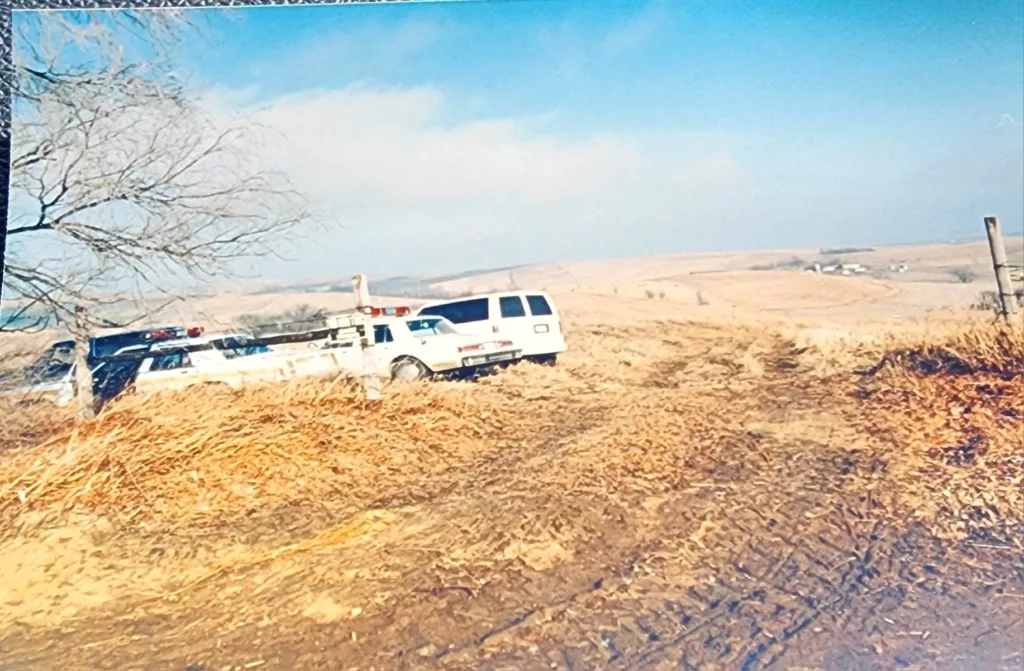
Within a couple of hours, law enforcement from Thurston County, the Bureau of Indian Affairs and the state patrol were on scene.
Frost covered parts of Anton’s body, which was pierced by three bullet holes fired from a .38-caliber revolver. Webb said during the interview with the Flatwater Free Press that he gave her a .38 for protection.
Days later, an assortment of police authorities met to discuss the case’s tricky legal jurisdiction. Her body had been found on tribal land, which would usually involve the FBI. But if she had been killed in Lyons, Burt County would be involved.
To sort it out, the cops sat around a table at the Hi-Way Diner in Lyons. Krieger and other Nebraska State Patrol investigators were there. So were Thurston County officials and Burt County Sheriff Leonard Canarsky.
And so was one other officer of the law: Lyons Police Chief Greg Webb.
Krieger, knowing that Webb lived above the woman, asked Webb if they had been intimate. Webb said no.
A few minutes later, he asked again. This time, Webb admitted to a single encounter, claiming they had sex the night she moved into the duplex.
The police around the table asked him to leave. And Krieger quickly knew he had his prime suspect.
Before Webb left, Krieger showed the police chief a black-and-white photo of Anton’s face. Webb acted as if he didn’t recognize her, and said he couldn’t confirm it was her, Krieger said. Edgecomb, by contrast, immediately recognized her friend, he said.
Investigators searched Anton’s apartment Dec. 29, two days after her body was found. They used Luminol, a spray not commonly used in small-town Nebraska until the 1980s that shows blood even if it’s been cleaned. They quickly found blood stains.
As they worked, investigators could hear Webb moving around upstairs.
“He was nervous,” Krieger said of the police chief. “It seemed like he was trying to listen to us. He eventually came downstairs and left.”
Then they checked the stairway leading to Webb’s apartment. A blood trail on the hallway’s floor and walls led to Webb’s home, Krieger said.
But a search warrant for Webb’s home wasn’t executed for five more days. Questions arose over that delay. Krieger said he believed at the time that local authorities, having worked with Webb, may not have wanted to search the home of a police officer. Canarsky and then-Burt County Attorney Clarence Mock don’t see it that way.
Mock couldn’t recall a specific reason for any delay over the New Year’s holiday. It may have been a jurisdictional question, he said. Canarsky said he questioned the legality of basing a search warrant on blood in the stairwell.
“I feared having any charges tossed out because we didn’t do things the right way.”
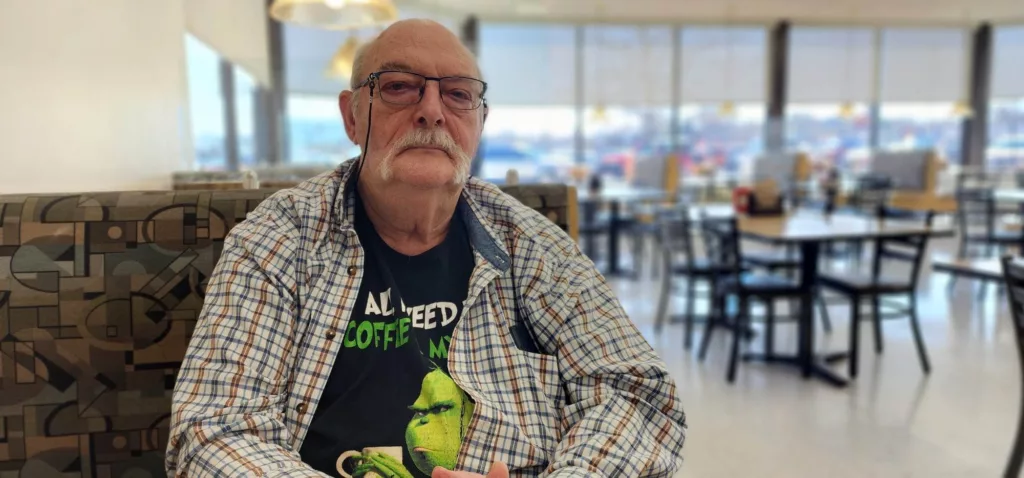
Once the warrant was issued, investigators searched Webb’s apartment, spraying Luminol around rooms. A large blood stain was found on the floor of the living room, along with splatters in each room and stains in the shower, Krieger said.
“It lit up like the Fourth of July,” Mock said.
Webb then admitted to disposing of Anton’s body and cleaning up the crime scene.
“We had been drinking a lot that night,” Webb told the Flatwater Free Press during his phone interview. “I woke up to the sound of two gunshots. I was still drunk when I found her body.”
Anton’s autopsy revealed her blood alcohol content was more than twice the legal limit when she died.
Webb claims that, fearing he would be blamed for Anton’s death, he took her body into the bathroom to clean it and then wrapped it in a sheet. He carried the body down the stairs, placed it in the trunk of his personal car and drove away.
As the sun rose, Webb said he noticed he had blood on his face when he looked in the rearview mirror. He had planned to dump the body on the Iowa side of the Missouri River, so investigators wouldn’t suspect him. When he saw the blood, he changed plans.
“I saw this old, gravel dirt road and went down it.”
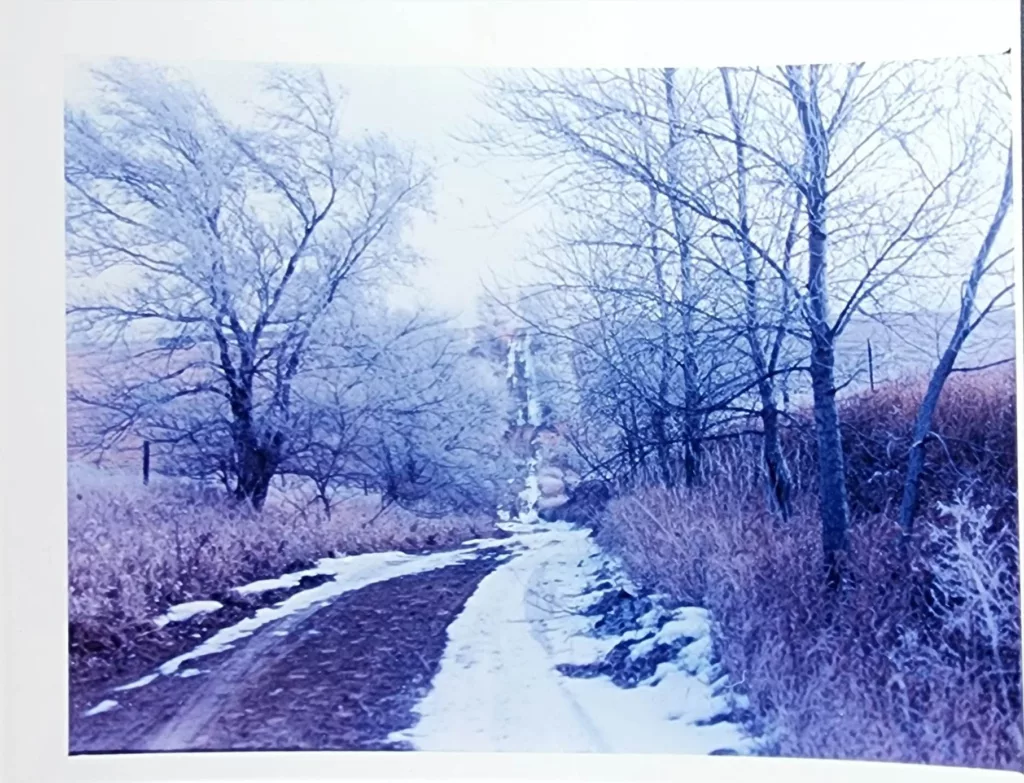
He threw the gun in the Missouri River and hid her cane in an abandoned farm building, Webb said.
Krieger didn’t buy Webb’s stories then, and he doesn’t buy Webb’s story now, 30 years after his capture.
“It’s an unmaintained road,” he said. “You just don’t drive down it on a whim. You have to know how to dispose of a body and that it was a good area to do it.”

During his phone call with the Flatwater Free Press, Webb’s tale got even stranger. He said that, a few days after dumping Anton’s body, he realized he had erred.
“I needed to get the body and bring it back and get things straightened out,” he said. “I planned to call the sheriff and we’d go from there. But, I couldn’t find the body. I drove all over looking for the body. I realized I was totally screwed no matter what happened.”
This much isn’t in dispute: On Dec. 23, Webb withdrew $3,500, all the money in his savings account, from the First National Bank of Lyons.
On Dec. 30, he vanished.
In his final act as county attorney, Mock filed first degree murder charges against Webb on Jan. 6, 1987. It would be another six years before Krieger and the Nebraska State Patrol would close the case.
Webb traded in his personal vehicle for another car at a Fremont dealership and consulted a travel agent about traveling to Central and South America. The new car was found, abandoned, in a Houston airport parking lot.
Webb, who says he fought as a mercenary in Rhodesia before serving as police chief in Oakland and then Lyons, was comfortable moving about internationally. He landed in Belize, planning to stay for a while.
But, his plans to live and work in Belize City quickly changed.
“They charge you a fortune, twice as much as they do in the United States,” he said. “Sheets on the bed in my hotel room looked like they hadn’t been changed in six months. There’s no bathroom.”
Krieger laughs when recalling Webb’s tales about Belize.
“If he had gone out into the country, things were a lot cheaper,” he said.
Webb met a Frenchman, and said they, along with other Europeans, took a bus to Guatemala City. The group wanted to visit a bar where Americans and Europeans were welcomed.
“There’s one light bulb lighting up the stairs,” he said. “But, it was a pretty good place. Good drinks, nice band. But, then out of nowhere, guys in black suits come in carrying assault rifles. They were anti-terrorist police looking for rebels.”
Webb soon tired of life in Central America. He hopped on a bus bound for Mexico, where he crossed back into the United States, eventually settling in Daytona Beach, Florida.
There he altered his birth certificate, changing Gregory John Webb to Gregory James “Jim” Webber. He got a Florida driver’s license under his new assumed name just three months after bolting from Lyons.
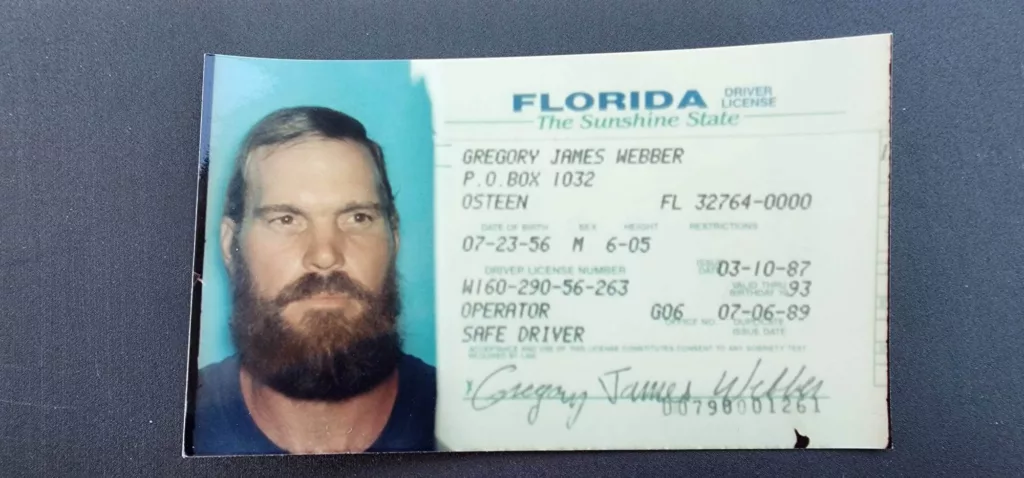
Now known as Jim Webber, Webb used phony social security numbers to get construction jobs. If a question arose, he’d quickly move on.
“I feared being caught all the time,” Webb said. “I was even stopped by the police a few times.”
For six years, Webb lived, and hid, in Florida. He met and moved in with Pam Gilroy, whom he would later marry while awaiting trial in Burt County. The couple later divorced, and Webb now lives with a woman he declined to identify.
His years successfully avoiding capture finally ended thanks to “Unsolved Mysteries” host Robert Stack.
John Brereton had employed Webb at his construction company. At one point, he called Webb into his office because of a concern about his social security number not matching. Webb said he gave Bereton another fake number. When that didn’t work, Webb said he quit.
Then, in mid-February 1993, Brereton watched one of his favorite shows – “Unsolved Mysteries.” The story focused on rural Lyons and its police chief. He quickly recognized that the construction worker he knew as Jim Webber looked very much like wanted murderer Greg Webb, only with a beard and longer hair. He called police the next day.
Webb’s physical features were easy to identify. He’s 6-foot-5 with “a Lurch-like appearance,” Canarsky said, comparing Webb to the “Addams Family” character.
Once Nebraska State Patrol investigator Krieger became aware of the latest report on Webb, he spoke by phone with Brereton.
“I asked him what kind of boots he wore and what he drank,” Krieger said. “I knew that when we captured him, Webb would be wearing those military-style boots.”
Krieger then planned his own trip to Florida. The investigator contacted Webb’s latest employer, asking that he be summoned to the company office. Then he called the FBI and local police.
“They asked me how I wanted it to go, and I said all I wanted was to put the cuffs on him,” Krieger said.
They compromised. On Feb. 23, 1993, when Webb entered the construction company office, two police officers were there to meet him, Krieger said. A local officer put the first handcuff on him.
Krieger said he then walked into the office, said “Hi Greg, remember me?” and clicked on the second handcuff.
“He replied, ‘What took you so long?’” Krieger said.
Looking back at his years on the run, Webb fondly recalls his life.
“At least I had six more years of freedom that I might not otherwise have had,” he said.
Word spread like wildfire of the ex-police chief’s arrest in Lyons. Burt County officials worried about a costly trial, which they estimated would cost $100,000 in 1993 at a time when the county was strapped for cash.
In the end, Webb took the manslaughter plea.
Burt County Attorney Nora Goll didn’t respond to multiple phone messages seeking comment on the plea deal. Former county attorney Mock said he understands her taking the manslaughter agreement.
“It might have been a bit difficult to establish to that degree of intent, where manslaughter would clearly be right on the money,” Mock said.
The deal meant that Webb, after serving eight years, walked out of the Nebraska State Penitentiary a free man in August 2002.
Now he’s retired and living in the Daytona Beach area.
“One thing people want to know is that I quit drinking after all that,” Webb said. “Of course, getting arrested kind of led to it.”
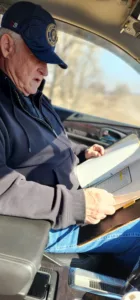
Krieger, who retired from the Nebraska State Patrol a few months after Webb’s arrest, is frustrated that the former police chief is free.
He believes Webb premeditated the killing after he got another girlfriend. They were worried that Anton would report them to child welfare, Krieger said, because Anton knew that the girlfriend was leaving the child home alone while she visited Webb.
“He was a law enforcement agent,” Krieger said. “He knew better. He should have been sent to prison for murder, because I still believe he planned it.”
Canarsky, the old Burt County Sheriff, isn’t so sure. During an interview, he said he now believes the State Patrol investigator focused too quickly on Webb instead of considering other suspects, such as the girlfriend from Oakland.
“If (Webb) did it, I think it was because he blacked out from drinking,” the retired sheriff said.
And Webb himself, who offered a variety of long, meandering stories during the phone interview, had a short, simple answer to the crucial question 30 years after his capture.
The Florida retiree is asked if he has any remorse.
“I don’t believe I killed her,” he said.

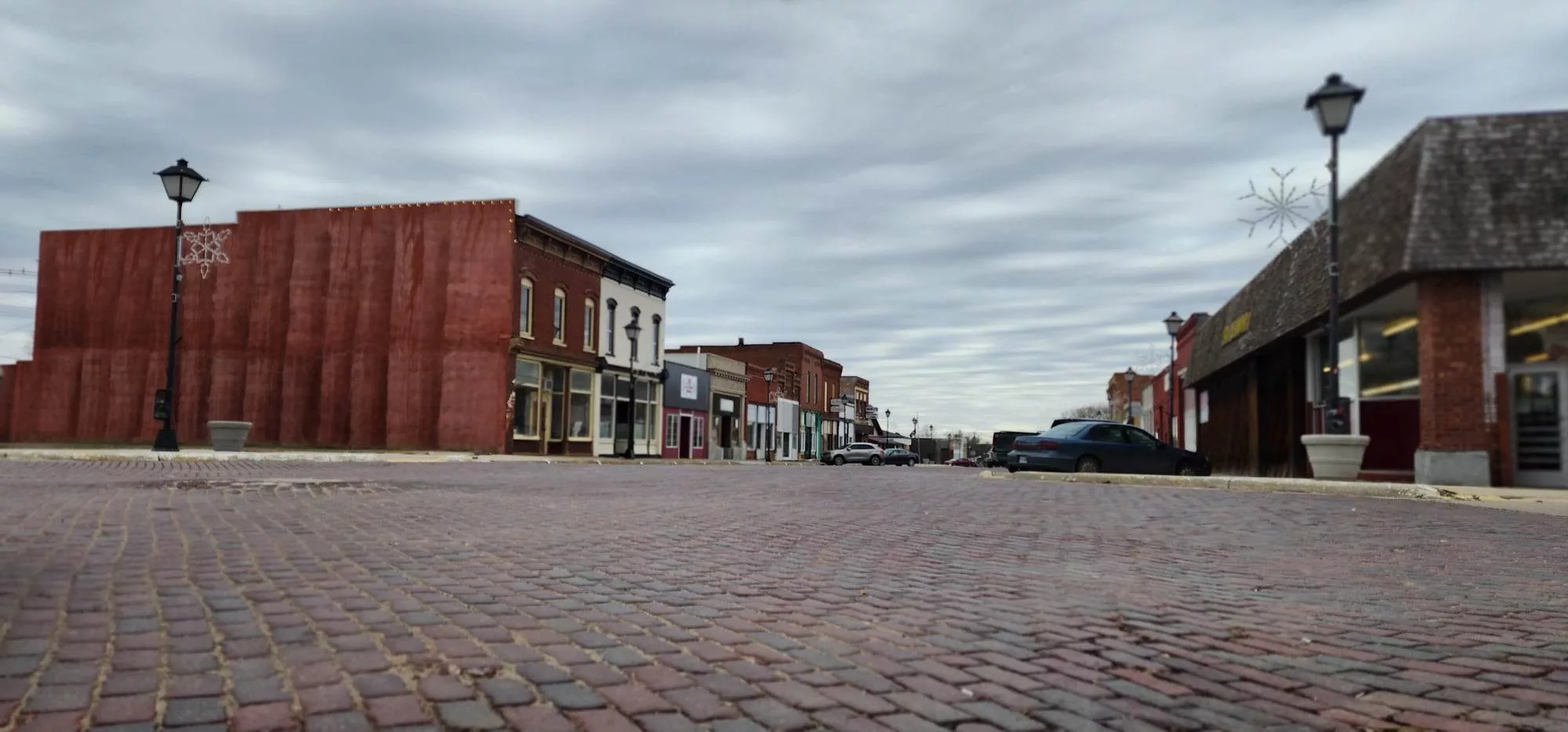

7 Comments
Great Story, well reported
What an awesome read and a not only that but it’s a story I never heard of til now . There’s no doubt in my mind that Webb killed Anna Anton and should still be in prison on death row . How he got away with murder one only knows cause he was a officer in uniform. If you haven’t already Tim , you should write a book about it cause the whole wide world needs to know the truth about what happened on that cold December night in 1986 . By the way your an awesome writer Tim and one should know when he see’s one…
Another example of fine investigative reporting. Thank you.
I grew up on a farm close to Lyons and remember this case. Sad he didn’t serve longer but I see the problem with trying to hang a longer sentence on Webb. So sorry for the slain Ms. Anton cut down in the prime of her life. Please do not let this story paint a broad brush on our beautiful Good Life state. All too often tales about us are just stories like this or Hollyweird movies like 100 Acres. This is an idyllic family state (Omaha and Lincoln are exceptions being big cities).
I attended court where a manslaughter charge was the plea agreement too but in that court they said the person has to serve every day of that 10 years so how the heck did this guy only have to serve 8 years? Was it a special sentencing because he was a police officer?
Small town justice. Iffy at best.
I can’t believe that Greg Webb got a slap on the wrist ESPECIALLY considering the fact that his victim was physically disabled! The judicial system can be a joke at times!